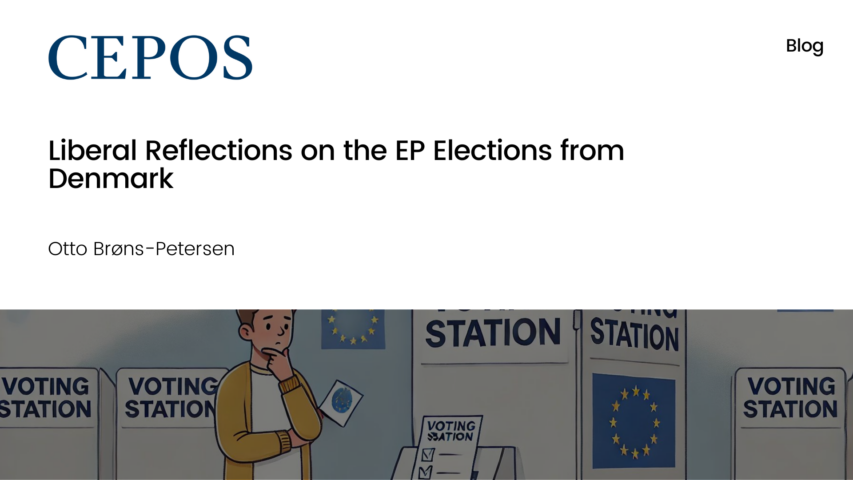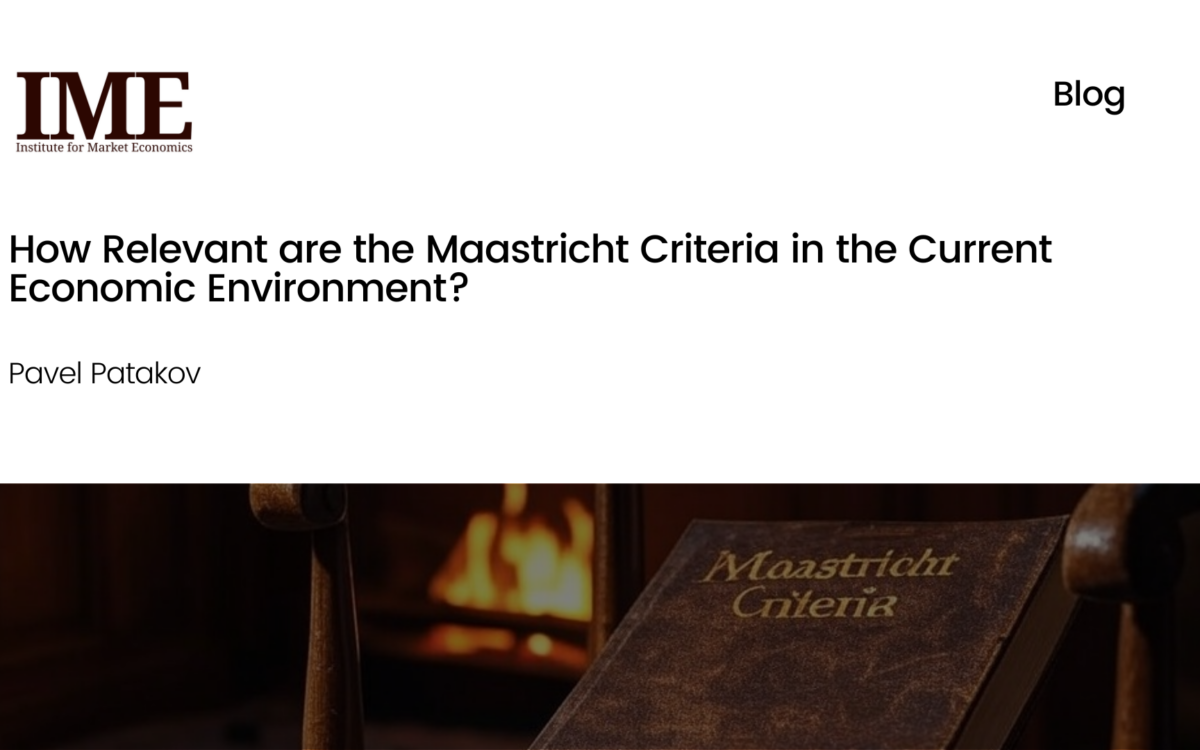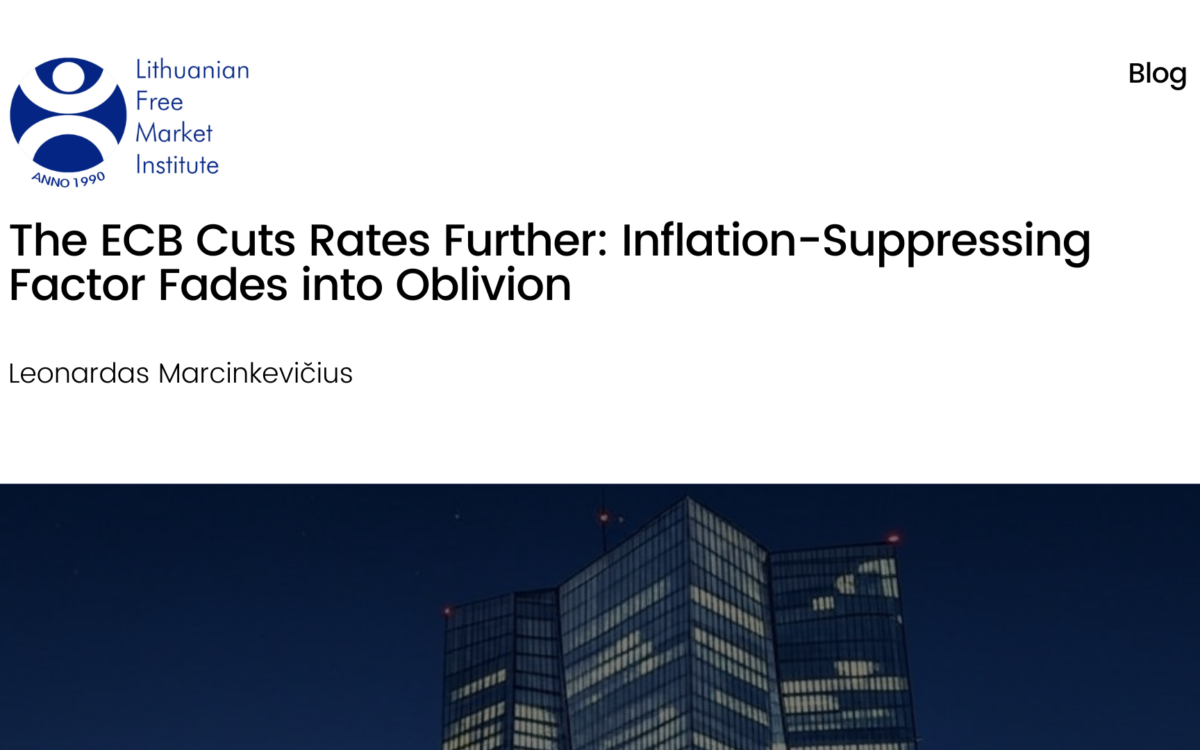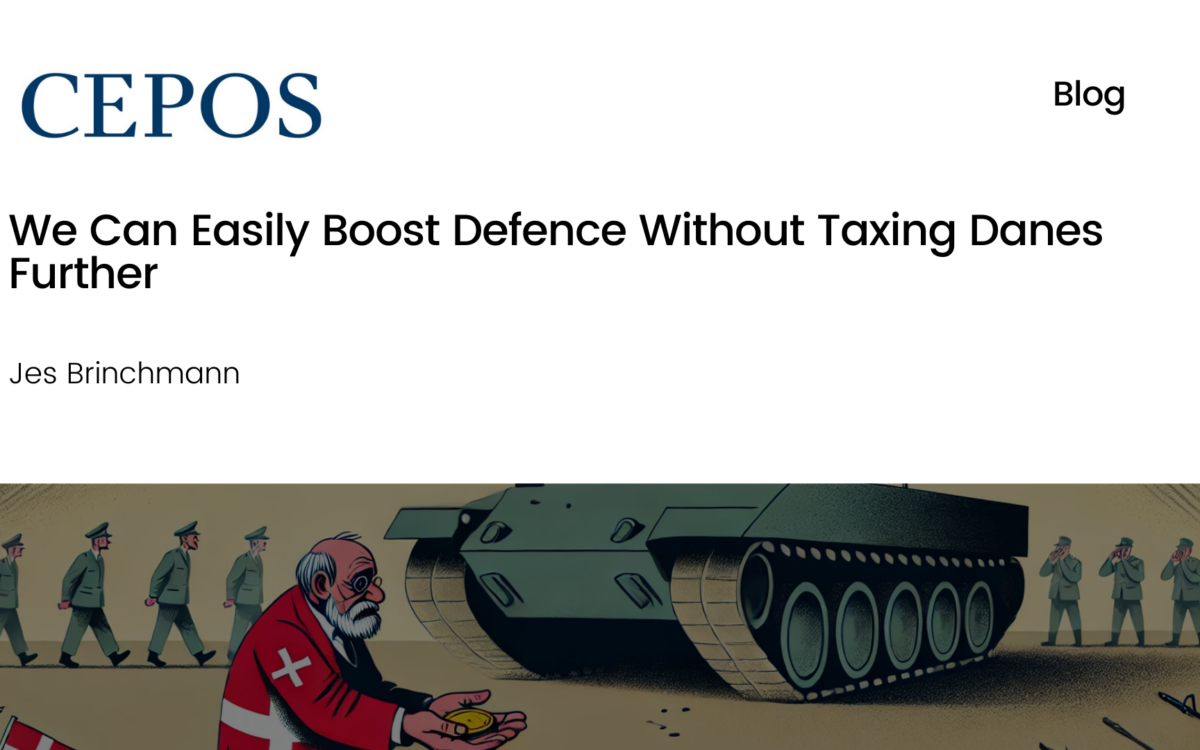Liberal Reflections on the EP Elections from Denmark

Liberal Reflections on the EP Elections from Denmark
Otto Brøns-Petersen // 4 July 2024
The EU election has been interpreted as a swing in an non-liberal direction, as ‘right-wing’ parties in Europe have made significant gains, while the share of votes for liberal parties, including Renew, has declined – including in France, where a shocked President Macron called for new elections to the National Assembly after receiving half as many votes as Marine Le Pen.
But the election results cannot be interpreted as clear-cut.
In some respects, there are liberal tendencies behind the move to the ‘right’, particularly in terms of a desire to shift political power from Brussels back to the nation states. This was evident in the line taken by the Danish People’s Party in Denmark, for example, mainly criticising centralisation in their campaign.
The non-liberal streaks of the ‘liberal’ Renew group
Similarly, there are clear non-liberal tendencies among formally liberal parties. In the liberal group, we find the strongest support for federalism, where proponents advocate for bigger EU budgets, state aid, and weakened budgetary discipline, including joint borrowing and relaxed fiscal rules, as well as relaxed majority requirements to make it ‘easier to make decisions in the EU’.
Macron is a case in point. There are also significant differences in position among the Moderates, the Radicals, and the Liberals in Denmark with regard to these points, even though they are all part of the liberal party group. Perhaps the Liberal Party’s better-than-expected election results can be partly explained by their more liberal position compared to the other two.
Support for centrist federalism weakened
If any overall conclusion can be arrived at from the election, it is that support for centrist federalism has weakened – not that there is a clear swing against liberalism.
Voters did not fall for the narrative that weak economic growth in the EU can be boosted by a less liberal economic policy – with more state subsidies, , protectionism, and greater national debt – and a stronger central state, as some liberal parties, claim.
Admittedly, the conservative European People’s Party (EPP) group behind Commission President von der Leyen – who, if anyone, has been at the forefront of centralisation during the last election period – had a good election, but she had toned down her signalling, and the Conservatives in Denmark, for example, did not campaign on such a federalist position.
Need for a positive programme
From a liberal perspective, what is needed first and foremost is to formulate a positive programme that stands in contrast to both anti-liberal centralism and anti-liberal nationalism, both of which abound in Europe.
The EU, as a co-operation between sovereign states, is responsible for those tasks that should naturally be solved at the community level – basically because it is about collective goods with a supranational impact, including climate policy and cross-border environmental problems.
This also means strengthening the internal market, expanding the EU with new members, promoting external free trade, fighting state aid, promoting deregulation, and preventing the drift towards fiscal union through decentralised enforcement of fiscal rules that prevent excessive debt.
For eurozone countries, this means a monetary policy focused on price stability. It means maintaining an institutional structure with a focus on checks and balances, which makes ‘normal politics’ difficult – especially in the form of distribution policy between countries and inefficient majority decisions.
The EU has both the institutions and, to a large extent, the history on which to build such a policy. There is probably greater support among the European population for this than for policies in either of the other two directions.
The original article was published by CEPOS in Danish.
EPICENTER publications and contributions from our member think tanks are designed to promote the discussion of economic issues and the role of markets in solving economic and social problems. As with all EPICENTER publications, the views expressed here are those of the author and not EPICENTER or its member think tanks (which have no corporate view).



